Our purpose as Actor and Sites Interpreters is to provide the context and information—in the form of tours and fielding questions—for visitors to not only appreciate the history of the building they are inside, but also to understand what happened within it in the 18th century. Thanks to the hard work of many before us, we’ve had the privilege to lead excellent, engaging tours. Yet a conversation over lunch last spring got us thinking about what we might address in a more comprehensive way: colonial women.
That was the moment Colonial Williamsburg’s 2016 Women’s History Tour, Pleading Her Cause was born.
The conversation that sparked an idea that became a reality is one we will both always remember.
“Why don’t we talk about women more?”
“I mean they were there, in the buildings. There are so many amazing cases of women in the Capitol, the Courthouse.”
“We should tell their stories.”
“You’re right.”
“We need to have their voices shine through.”
What better place to bring those stories to life than the Capitol? For years, we’ve been telling the stories of Royal Governors and Burgesses. It was time to switch things up. We were ready to take a topic that is male-dominated—legislation—and turns it on its head.
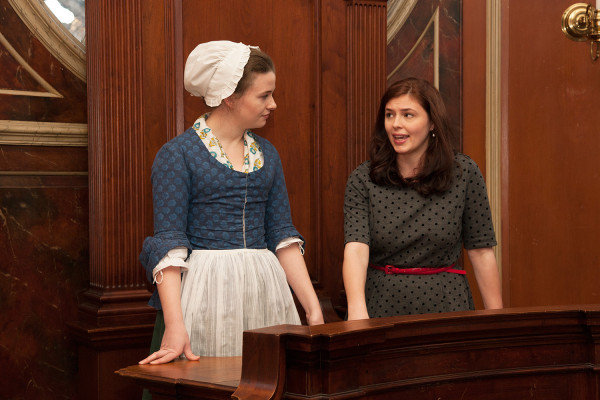
The concept of inequality is understood by many, and we think it’s relatable, but for different reasons depending on the person. In this case, it’s a word that is a touchstone for understanding women in colonial law. Through trials and tribulations, losses and gains, women overcame inequality to seek recognition and resolution in legislative matters in 18th-century Virginia.
Throughout our research, we met some amazing women from the pages of Virginia’s history. The woman who fought to keep her property after her husband abandoned her and their child. The enslaved Christian who asked for the same criminal rights given to free Christians in a courtroom. Countless others treated differently in the eyes of the law, often for crossing the era’s acceptable social and cultural boundaries.
Yet women were not just pawns in an unforgiving world. When possible, they were agents for themselves and their children, attempting to navigate a system that was biased from the start. Yet American history is not a fairy tale. Sometimes they succeeded. Sometimes they were punished. You will see both outcomes, the commonality being women trying to assert their rights as human beings.
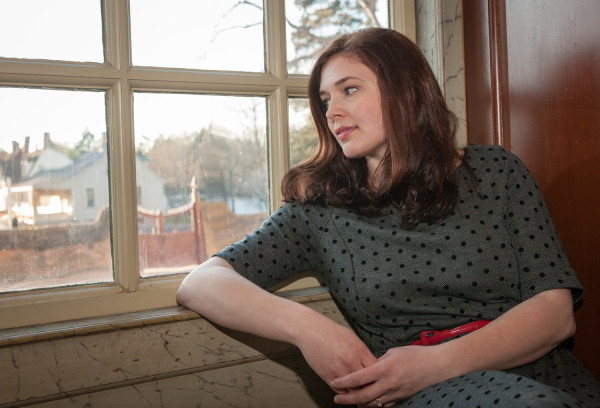
Every woman deserves to have her story told. Unfortunately, many of these stories are lost to history. Some only exist in bits and pieces, appearing briefly in historical sources to then disappear again. But each one matters. This is not to discount the stories that have been retained and repeated over the years, of course. We simply hope our research, shared through our skilled interpreters presenting the program, will give a new-found complexity to the realities of colonial legislation in Virginia. Women’s struggles to gain control and meaning through the legislative system is a struggle that still resonates with us today.
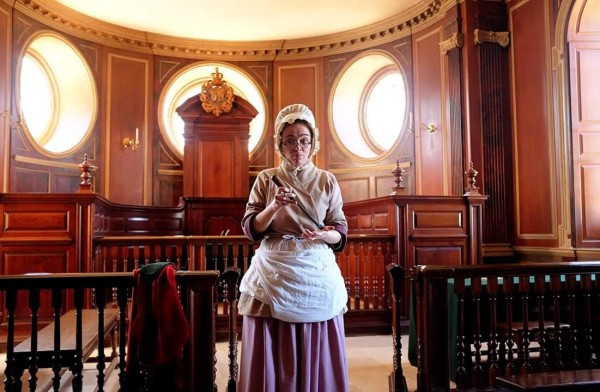
Every Wednesday and Saturday during the month of March, it will be our challenge and blessing to unpack these complicated issues with you during Pleading Her Cause. By sharing their stories in this unconventional venue, we can turn the adversity thousands of 18th-century women overcame and survived (black, white, and native) into a teachable moment. If we are successful, you can relate to a concept that is timeless and learn something in the process.
Please, come and see us and offer your feedback. We look forward to continuing what we hope is an ongoing discussion!
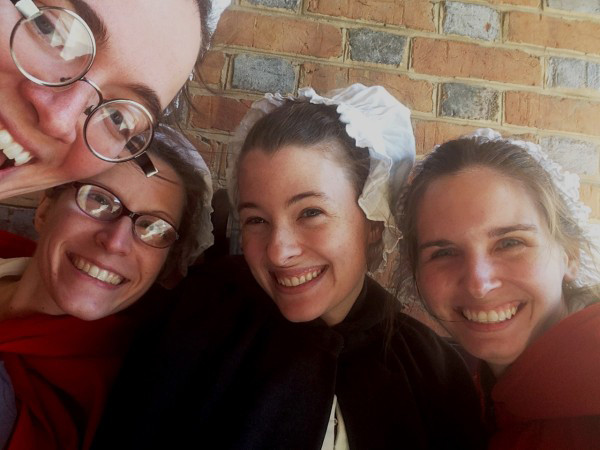
Thank you to Lael White and Barbara Saunders for the pictures!
Guest Bloggers: Nicole Brown & Emily Doherty
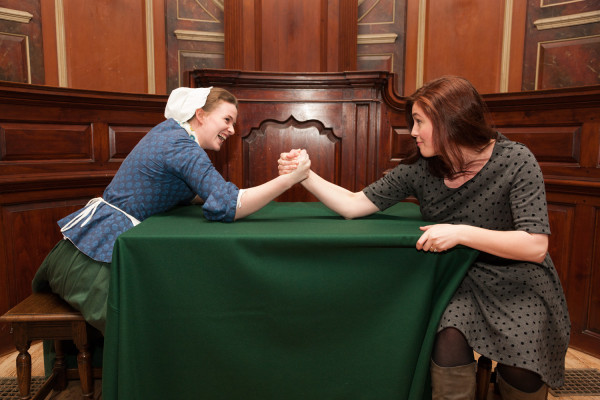
Nicole Brown has worked for the Foundation since 2014. However, her love for history started when she was very little. Nicole has worked as a Sites, Actor, and now Character Interpreter for the Foundation. She is blessed and delighted to work on this program with her partner-in-crime (and her best friend) Emily Doherty.
Emily Doherty works for the Historic Sites department within the Colonial Williamsburg Foundation. Previously she spent a summer working in the brickyard, so she can assure you that yes-it does get hot in those clothes. She is ever thankful for her father who decided that instead of going to amusement parks, school vacations would be spent visiting historic sites around New England. Emily is proud to have (almost!) realized her childhood ambition to grow up to be Felicity Merriman!
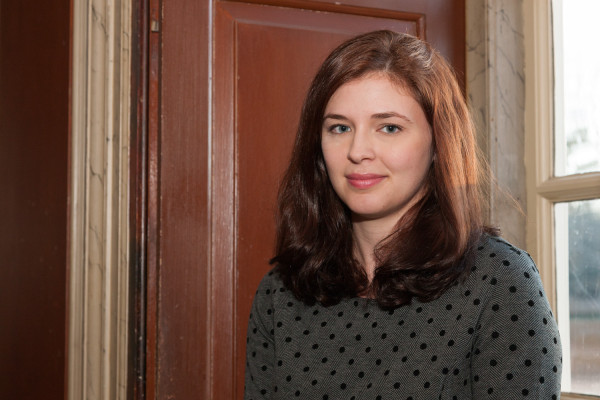
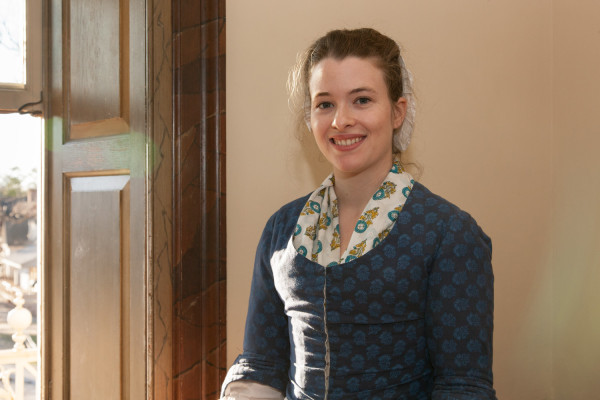
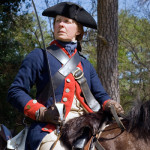
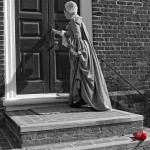
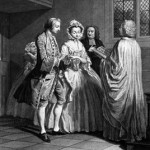
Brian Hubert says
I have a general question for the authors.
I was curious if you believe history can only be learned or experienced at a historic site? What makes something historic?
Does it need interpreters, exhibit cases and velvet ropes to be historic?
Or can other experiences, such as catching a train at an historic train station like Grand Central Terminal, watching a ball game with friends at a tavern that’s been in business for 300 years, riding a carousel with an old Wurlitzer organ and hand carved animals from a century ago, or riding an old wooden roller coaster from the 1939 Worlds Fair qualify as experiencing the past?
Just curious what’s your thoughts
This sounds fantastic! I hope there’s a possibility that this will become an ongoing program. We’re coming to CW in late October (wish we were coming in a moving van) and I would dearly love to see this! Thank you for being so devoted to telling women’s stories.
Hope to hear Holly Hunter discuss this on the CW podcast soon as a visit to CW is distant.
Pleading her cause sounds like a wonderful program. I can’t wait to see it. My daughter and I will be there the last week of this month so we will make sure to see it. Can you tell me of some on line resources to study American history? Especially the revolution and what pertains to Williamsburg? I’ve been looking but I’m not to successful in finding what I want so far. I want to find some of those wonderful human interest facts to learn. Keep up the great work of bringing us living history.